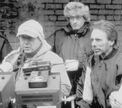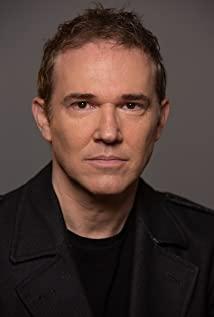The United States is the first country in the world to propose and adopt regulations to protect the right to privacy. In 1968, the United States passed the Omnibus Crime Control and Safe Streets Act to provide for secret wiretapping, replacing the 1934 "Omnibus Crime Control and Safe Streets Act". The Federal Communications Act's provisions on wiretapping ended the United States' history of relying on case law to regulate covert wiretapping. Title III of the Comprehensive Crime Control and Street Safety Act mainly regulates the interception of communications, namely wiretapping and electronic surveillance. In the United States, the application of wiretapping adopts a combination of the law of severity of crimes and the method of listing offenses. For example, Article 2516 of Title III of the Comprehensive Crime Control and Street Safety Act specifically lists the scope of application of wiretapping, with a total of 14 items and more than 60 kinds. The crimes include murder, kidnapping, gambling, robbery, bribery, extortion, drug dealing and other crimes that endanger life, health or property, and it is stipulated that crimes that may be sentenced to death or imprisonment for more than one year are also within the scope of crimes that can be monitored. Section 2518 sets out the conditions for issuing a wiretapping warrant: first, there is a good faith belief that someone is committing a crime listed in the Act; second, there is good reason to believe that a conversation about the crime can be obtained by wiretapping; The use of ordinary reconnaissance methods also failed to work, etc.
The Privacy Act was passed in 1974 and the Electronic Communications Privacy Act was enacted in 1986 to expand the protection of electronic communications. In 1994, the U.S. Congress passed the "Communication Assistance for Law Enforcement" (Communication Assistance for Law Enforcement), which clarified the obligation of communication service providers to cooperate with communication monitoring for the purpose of law enforcement.
After September 11, 2001, the United States passed the "Uniting and Strengthening America by Providing Appropriate Tools Required to Intercept and Obstruct Terrorism Act" (Uniting and Strengthening America by Providing Appropriate Tools Required to Intercept and Obstruct Terrorism Act), its 26th Article allows for the surveillance of individuals at any time, and in 2006 the application of the law was extended. U.S. Federal Judge Taylor in Detroit has ruled in the case of the American Civil Liberties Union suing the U.S. security department's domestic wiretapping program for violation of civil rights, finding that President Bush authorized the National Security Agency to conduct domestic surveillance without court approval after 9/11. The eavesdropping of residents' international communications violates citizens' freedom of speech and privacy rights, and demands the government to immediately stop such eavesdropping activities. The U.S. Congress appealed on the grounds of Article 4 of the U.S. Constitution, "The United States shall protect the states from aggression," arguing that this habeas corpus privilege can be temporarily suspended when the country is attacked by terrorism. It is the high generalization and flexibility of the U.S. Constitution that allows the U.S. Congress to pass a new bill that allows the government, under certain conditions, without the need for court approval, to implement a limited domestic wiretapping program to meet the urgent needs of national security, and become the implementer of wiretapping. subject of rights.
In June 2013, Snowden, a former U.S. defense contractor employee, disclosed confidential documents related to the NSA's "Prism" project and other related documents through various media, alleging that the U.S. intelligence agency has continued to monitor Internet activities and communication operators at home and abroad for many years. User information directly affects the relationship between the United States, Russia and the European Union. In 2014, the U.S. House of Representatives passed the USA Freedom Act, limiting the NSA’s mass collection of U.S. citizens’ phone records. However, the National Security Agency "transitions" the work of domestic surveillance to communication service providers. After the bill is enacted and implemented, telecommunications companies will be responsible for collecting and storing communication data, while the National Security Agency only confirms that a person or an organization is terrorist Only when the activity is suspected can the relevant data be obtained from the telecommunications company.
In "Public Enemy of the Whole People", the main body of monitoring is a group composed of officials of the National Security Agency and non-state agency staff. It is tracked in real time using satellite positioning. However, the purpose of monitoring in this case is not to detect crimes, but to cover up crimes.
In fact, the main subjects of surveillance in the United States are the police, procuratorates, grand juries and even private investigators, and the application of technical investigations is mainly used by the procuratorial organs in the process of duty crime investigation. For now, the police are the most important subject in the United States exercising the power of secret investigation. In the investigation process, they can comprehensively use various secret investigation methods. In the United States, prosecutors are in a weaker position in the criminal investigation agency system, and prosecutors can also conduct secret investigations when they solve cases. However, because of the particularity of the scope of its investigation cases, its secret investigation power is limited. The means of US technical reconnaissance mainly include interception of communications, secret searches, tracking and surveillance, seizure or inspection of electronic documents, etc.
To sum up, it can be seen that the United States has gradually loosened its controls on surveillance, gradually delegated power to public power, and gradually tolerated the admissibility of evidence obtained through surveillance. For the sake of national security, citizens’ privacy rights have been gradually restricted. At the end of the film, the actor's wife, who was deeply persecuted by the monitoring storm, said: Who's going to monitor the monitors of the monitors? need to obtain intelligence data and the protection of civil liberties, particularly the sanctity of my home? You've got no right to come into my home. Although US surveillance technology continues to advance, the nation's need for knowledge of personal information and the need for national security It is still impossible to draw a clear line between the contradiction between the protection needs of the government and the privacy rights of citizens.
View more about Enemy of the State reviews











